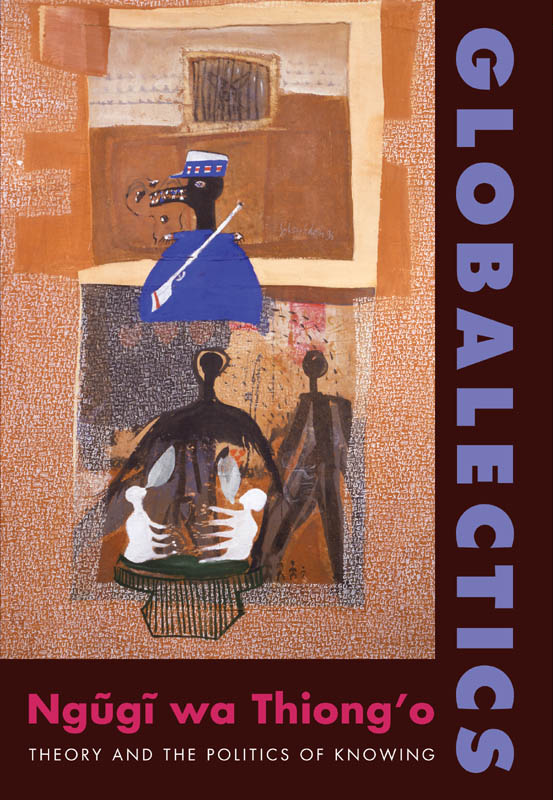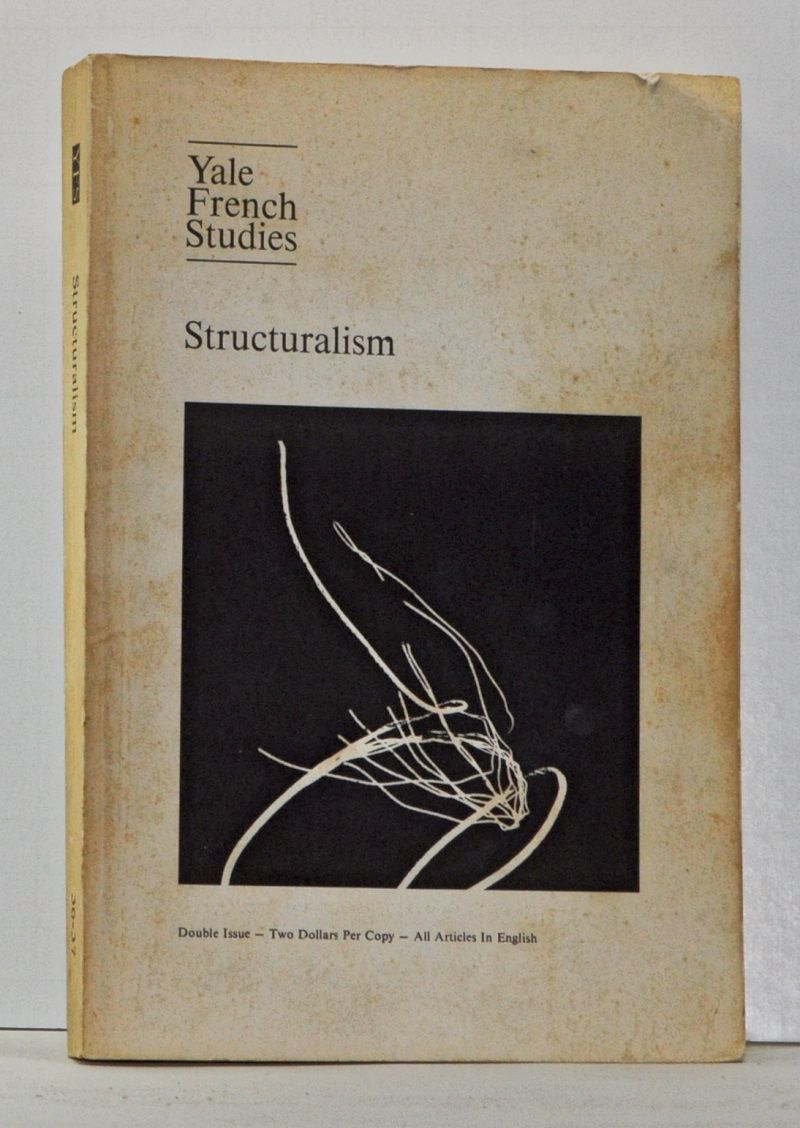Ngũgĩ wa Thiong’o: Globalectics: Theory and the Politics of Knowing (2012)
Filed under book | Tags: · africa, dialectic, globalisation, knowledge, literary criticism, literary theory, literature, neocolonialism, orality, politics, postcolonialism, theory

“A masterful writer working in many genres, Ngũgĩ wa Thiong’o entered the East African literary scene in 1962 with the performance of his first major play, The Black Hermit, at the National Theatre in Uganda. In 1977 he was imprisoned after his most controversial work, Ngaahika Ndeenda (I Will Marry When I Want), produced in Nairobi, sharply criticized the injustices of Kenyan society and unequivocally championed the causes of ordinary citizens. Following his release, Ngũgĩ decided to write only in his native Gikuyu, communicating with Kenyans in one of the many languages of their daily lives, and today he is known as one of the most outspoken intellectuals working in postcolonial theory and the global postcolonial movement.
In this volume, Ngũgĩ wa Thiong’o summarizes and develops a cross-section of the issues he has grappled with in his work, which deploys a strategy of imagery, language, folklore, and character to ‘decolonize the mind.’ Ngũgĩ confronts the politics of language in African writing; the problem of linguistic imperialism and literature’s ability to resist it; the difficult balance between orality, or ‘orature’, and writing, or ‘literature’; the tension between national and world literature; and the role of the literary curriculum in both reaffirming and undermining the dominance of the Western canon. Throughout, he engages a range of philosophers and theorists writing on power and postcolonial creativity, including Hegel, Marx, Lévi-Strauss, and Aimé Césaire. Yet his explorations remain grounded in his own experiences with literature (and orature) and reworks the difficult dialectics of theory into richly evocative prose.”
Publisher Columbia University Press, New York, 2012
Wellek Library Lectures in Critical Theory series
ISBN 9780231159500, 0231159501
xi+104 pages
Reviews: Publishers Weekly (2011), Corbin Treacy (Transnational Lit, 2012), Danson Kahyana (Slip, 2012), Geoff Wisner (Words Without Borders, 2012), M.A. Orthofer (Complete Rev, 2012), Jenna N. Hanchey (E3W Rev of Books, 2013), Devin Zane Shaw (Society+Space, 2013), Magalí Armillas-Tiseyra (E-Misférica, 2014), Oliver Lovesey (Cambridge J Postcolonial Lit Inquiry, 2014), Ndiritu Wahome (2016).
Comment (0)Yale French Studies 36/37: Structuralism (1966)
Filed under journal | Tags: · anthropology, language, linguistics, literary criticism, literary theory, philosophy, psychoanalysis, structuralism, unconscious

An early English-language collection of French structuralist writings.
Essays by André Martinet, Philip E. Lewis, Claude Lévi-Strauss, Harold W. Scheffer, Sheldon Nodelman, Jan Miel, Jacques Lacan, Geoffrey Hartman, Jacques Ehrmann, Michael Riffaterre, and Victoria L. Rippere. Bibliographies compiled by Elizabeth Barber, Allen R. Maxwell, Jacques Lacan, Anthony G. Wilden, and T. Todorov.
Edited by Jacques Ehrmann
Publisher Yale University Press, 1966
272 pages
PDF (17 MB)
Comment (1)Max Bense: aesthetica IV. Programmierung des Schönen. Allgemeine Texttheorie und Textästhetik (1960) [German]
Filed under book | Tags: · aesthetics, information theory, literary theory, statistics, text, theory

“Max Benses informationeile Ästhetik schließt mit einer Allgemeinen Texttheorie ab, die, auf der Grundlage statistischer Untersuchungen von Fucks, Herdan, Mandelbrot u. a., als Modell der neuen statistischen Zeichen-Ästhetik aufgefaßt werden kann.
Die Allgemeine Texttheorie bezieht sich auf jede Art von Text, schließt also die ästhetische Theorie der Poesie und Prosa, aber auch der wissenschaftlichen Sprachen, Werbesprachen und abstrakten Sprachen usw. ein.
Der Begriff Text wird dabei als derjenige sprachliche Zustand aufgefaßt, der statistische bzw. informationelle, semantische bzw. ästhetische Formen meint, aus deren Materialität Poesie und Prosa im klassischen Sinne erst hervorgehen. Der Begriff Text zielt also nicht auf vorästhetische Zustände der Sprache ab, sondern auf vorpoetische und vorprosaische. Er bestimmt gewissermaßen die archaischen theoretischen Fundamente der Literatur.
Allgemeine Texttheorie umfaßt also Textstatistik, Textsemantik, Textphänomenologie und Textästhetik. Der bisher völlig unklar oder falsch verwendete Ausdruck Logik der Dichtung verschwindet zugunsten des genau formulierbaren Ausdrucks Textsemantik, der den Begriff Textlogik mit umfaßt.
Es werden also sowohl numerische wie essentielle Überlegungen zum Begriff Text angestellt.
Die Allgemeine Texttheorie erscheint als Grundlagenforschung für zukünftige Literaturwissenschaft und Literaturtheorie. Sie will exakte Mittel einführen und der beliebigen üblichen Interpretation, soweit sie nicht historische Fakten herausstellt, ein Ende bereiten.” (from the dusk jacket)
Publisher Agis, Baden-Baden and Krefeld, 1960
128 pages
via Mitchell Johnson
Commentary: Reinhard Döhl (n.d., DE).
Comment (1)
